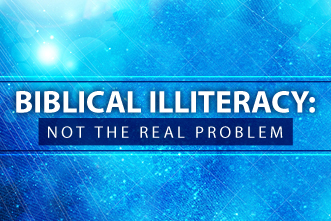This guest post is by an anonymous person. Even though he is not ashamed of whom he is, he has chosen to remain anonymous to avoid embarrassing family members who are still evolving on these issues. This post was condensed from interviews with our anonymous poster.
This is Part 4 of 4 Blog Posts from this person. If you missed them, please also read Part 1: I Am Queer, Part 2: Don’t Hate Me for Being Queer, and Part 3: Queer Christians.
Whether you agree or disagree with what he says, please be gracious in how you respond.
An Open Letter to Christians from a Queer
Dear Christian,
If you want to claim the title “Christian,” then try to look and act like Jesus. If you have the idea that you should be looking for sin in anyone, look in the mirror, not at me or at anyone else.
Shunning me, quoting Bible verses to me, telling me what you think the Bible says (you’re usually wrong), telling me I’m disgusting and an abomination, telling my friends the same things and all the other unloving things you do and say to us has got to stop.
None of us think you look like Jesus, so if you plan to wear the name, then be who you say you are. Feed the hungry, clothe the naked, help the poor, the orphans and the widows. Love your neighbors, and that includes all of us LGBTQ’s. Even if we frighten you or make you feel uncomfortable, love us. And not just with words. Show us you love us.
Get to know some addicts, some dealers, some hookers, some human traffickers. Sit down and talk to them. Find the homeless when it’s raining and sit with them. Eat with them. Learn to love all of these people just as they are. Don’t try to change them. If you think other people should change, then talk to Jesus. He’s the only one who can change them. I can’t change them. You can’t either.
When I was out there in this messy life, walking without Jesus, you did not love me. I wanted nothing to do with you or your religion. You did not come to me. But Jesus did. Jesus found me.
Get over yourself. Look like Jesus, or stop posing as one of his people.
If you ever decide to really look like Jesus and do the kind of things he did, we’ll notice. Word will get around. Don’t bother telling us. We won’t believe you. Show us. Show us your love. We will know you are a Christian by your love.
With love,
Your friend, a Queer

Do you have questions for me? Do you want to hear more of my story? Make sure you read the other three posts linked to above. If there is enough interest, we can do a Q&A in a future post.





 Somewhere along the way, showing love to others requires that we also show love to our neighbors. It is a tragic reality of most Christians that while we spend hours at church hearing and studying about loving and serving the community, very few followers of Jesus know the names of the people who live in the homes on either side of them, let alone the needs, worries, and concerns that they have about their health, they job, their marriage, their children, or their finances. So along with loving our families, we can also making
Somewhere along the way, showing love to others requires that we also show love to our neighbors. It is a tragic reality of most Christians that while we spend hours at church hearing and studying about loving and serving the community, very few followers of Jesus know the names of the people who live in the homes on either side of them, let alone the needs, worries, and concerns that they have about their health, they job, their marriage, their children, or their finances. So along with loving our families, we can also making 

 These courses are much cheaper than what you will pay at another online Bible College or Seminary ($600-$900 per course), plus you can complete them on your own time and at your own pace.
These courses are much cheaper than what you will pay at another online Bible College or Seminary ($600-$900 per course), plus you can complete them on your own time and at your own pace. I have actually attended four of these online Bible colleges, and have taken classes from them. The others I have heard good things about from friends and family members who have attended them.
I have actually attended four of these online Bible colleges, and have taken classes from them. The others I have heard good things about from friends and family members who have attended them. The great benefit to online Bible College courses is that you can “attend class” when it is convenient for you. Though I was actually living in Dallas when I attended Dallas Theological Seminary, I always took at least one course online each semester. This means less time away from home and I could “sit in class” at 1 or 2 in the morning if necessary.
The great benefit to online Bible College courses is that you can “attend class” when it is convenient for you. Though I was actually living in Dallas when I attended Dallas Theological Seminary, I always took at least one course online each semester. This means less time away from home and I could “sit in class” at 1 or 2 in the morning if necessary.
 A reader recently sent a a series of questions about the experience of Jesus on the cross. I have answered most of the questions in previous posts (since the list below). In this post I will address the question about what Jesus meant when He said, “My God, My God, why have You forsaken Me?”
A reader recently sent a a series of questions about the experience of Jesus on the cross. I have answered most of the questions in previous posts (since the list below). In this post I will address the question about what Jesus meant when He said, “My God, My God, why have You forsaken Me?” The main point of the question above is that since both Jesus and God the Father knew that God would raise Jesus from the dead (Matt 12:40), in what sense what Jesus forsaken by God?
The main point of the question above is that since both Jesus and God the Father knew that God would raise Jesus from the dead (Matt 12:40), in what sense what Jesus forsaken by God? This experience of separation from God elicited the cry of Jesus, “My God, My God, why have you forsaken me?” He had never experienced this separation before, and though He knew that He would be reunited with God in a short while, the pain and agony of the separation was caused this cry of despair from Jesus.
This experience of separation from God elicited the cry of Jesus, “My God, My God, why have you forsaken me?” He had never experienced this separation before, and though He knew that He would be reunited with God in a short while, the pain and agony of the separation was caused this cry of despair from Jesus.
 Quite to the contrary, it could be argued that in the death of Jesus, God experienced greater loss, greater pain, and greater suffering than do human parents.
Quite to the contrary, it could be argued that in the death of Jesus, God experienced greater loss, greater pain, and greater suffering than do human parents.  And when death strikes, God is there, grieving and mourning over the death of yet another child.
And when death strikes, God is there, grieving and mourning over the death of yet another child. 